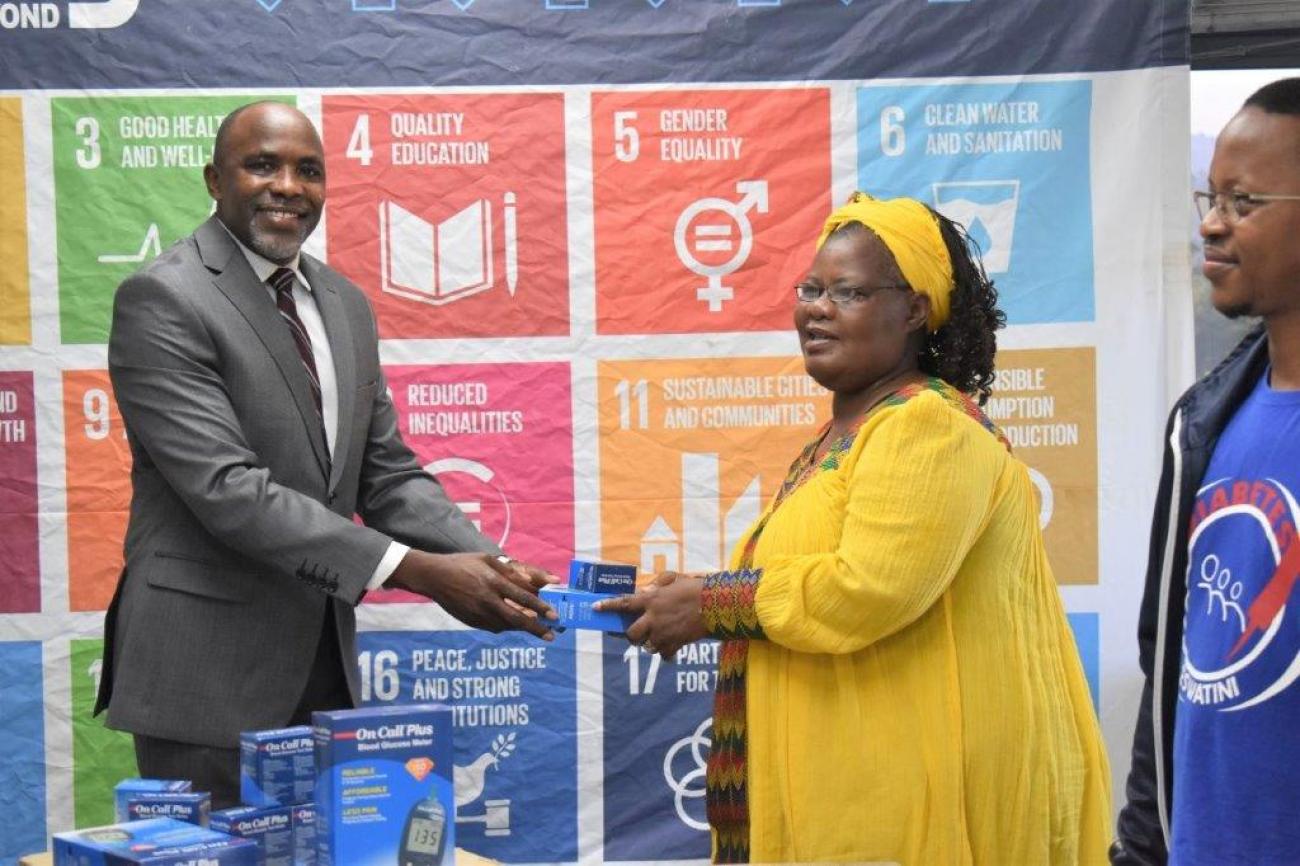Many persons with diabetes in Eswatini will now be able to test their blood sugar levels in the comfort of their homes.
On the 11th May 2022, the Diabetes Association of Eswatini received 160 self-testing kits worth over E77,000 (US$5,000) from the United Nations in Eswatini. The self-testing kits will be used during community awareness activities being carried out by the Association across the country, building up to the commemoration of the World Diabetes Day in November 2022.
“We have lined up a series of awareness activities in several communities across the country and we shall be teaching people how to live with diabetes,” said Dumsile Mavuso, Director and Founder of the Diabetes Association of Eswatini. She expressed appreciation to the United Nations for extending support in the form of self-testing kits, which she said will help save lives in the communities.
UN Resident Coordinator, Mr. George Wachira, who officially handed the kits over to the Diabetes Association, commended the Association for reaching out and empowering people with knowledge of how to manage this serious disease. “It is crucial that people in communities are empowered with the correct knowledge of how to manage such a disease, which remains a threat to the health and well-being of many.”
He noted that while the 17 Sustainable Development Goals were indivisible and crucial to be achieved together for sustainable development, health and well-being of the people (SDG 3) was central to all. “Without health and well-being, it is impossible to work towards achieving the other goals,” he said.
The Diabetes Association Eswatini has established 114 support groups nationwide, each educating an average of 600 people on the disease every year.
According to WHO, people with non-communicable diseases are more vulnerable to becoming severely ill or die from COVID-19. These diseases include cardiovascular disease, chronic respiratory disease, diabetes mellitus and cancer.
As of the 11th of May 2022, Eswatini had recorded a total of 71,480 coronavirus cases and 1402 deaths. According to WHO, most of these deaths were related to pre-existing medical conditions that the deceased had.
“It is essential that we monitor our blood sugar levels,” says Mavuso. “Before we eat in the morning and when taking medication, you need to know where you stand. It is especially important when you administering insulin.”




